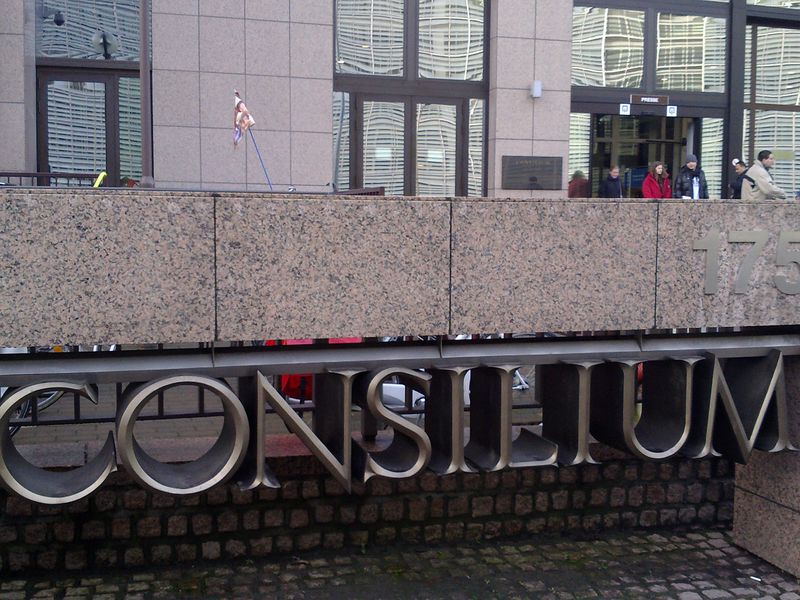Expected Results for the EU Integration of Serbia and Montenegro
Evelina Topalova, December 12, 2011
 Serbia and Montenegro will have to wait until next year to see their progress on the EU-demanded reforms, taking shape into concrete steps forward in their EU integration process. As expected, the last for this year European Council did not approve the so desired candidate status for Serbia, nor did it fix a specific data for opening of accession talks with Montenegro. Still, Brussels set a timetable for the two countries.
Serbia and Montenegro will have to wait until next year to see their progress on the EU-demanded reforms, taking shape into concrete steps forward in their EU integration process. As expected, the last for this year European Council did not approve the so desired candidate status for Serbia, nor did it fix a specific data for opening of accession talks with Montenegro. Still, Brussels set a timetable for the two countries.
For Serbia this means that the country could get a status in February, which should be confirmed at the EU summit in March, whereas for Montenegro - that it could launch talks in June. This would happen only after certain conditions are met.
European Council President Herman Van Rompuy said that Serbia had made considerable progress in terms of cooperation with the International Criminal Tribunal for the former Yugoslavia and that dialogue with Kosovo had brought about first results. "We encourage Serbia to build on that dialogue and to improve relations with Pristina for the sake of regional stability and Serbia's own interests," he said.
The delay in granting the status was expected, having in mind Germany's objections especially after the latest incidents on the administrative border between Serbia and Kosovo that left some German KFOR soldiers wounded. Serbia has arrested former military leader of Bosnian Serbs Ratko Mladic, thus overcoming a key hurdle, but one more key obstacle still lays on its EU path, namely to normalise its relations with Kosovo, whose independence it refuses to recognise. The EU's decision not to grant a candidate status to Serbia triggered different reactions and one resignation.
 Serbian President Boris Tadic said that he was not disappointed with Brussels' conclusions and the decision did not mean a blow to the state policy. He highlighted that Serbia should not and could not renounce its European future because such a decision would have serious consequences. He stressed that Belgrade would keep on defending its interests in Kosovo and would not recognise Pristina's independence neither explicitly, nor implicitly. Tadic voiced confidence that a solution to the Kosovo problem could be found.
Serbian President Boris Tadic said that he was not disappointed with Brussels' conclusions and the decision did not mean a blow to the state policy. He highlighted that Serbia should not and could not renounce its European future because such a decision would have serious consequences. He stressed that Belgrade would keep on defending its interests in Kosovo and would not recognise Pristina's independence neither explicitly, nor implicitly. Tadic voiced confidence that a solution to the Kosovo problem could be found.
Faithful to his reconciliation policy, the Serbian president congratulated Croatia for signing the accession treaty and Montenegro for getting a conditional date for the start of talks.
The main opposition party - Serbian Progressive Party - said that not getting a status equalled a failure of the government and called for early elections. The leader of the Democratic Party of Serbia and former prime minister Vojislav Kostunica also believes that the government should assume responsibility by tendering its resignation and calling fresh elections.
The decision of Brussels from December 9 led to the first resignation in the government. Deputy Prime Minister for European Integration Bozidar Djelic renounced the post, citing personal reasons.
Unlike Serbia, Montenegro was celebrating after the European Council's decisions.  The country received a candidate status in 2010 but still waits for a start of its membership talks. Herman Van Rompuy said that Brussels would keep on assessing Podgorica's progress, especially in the rule of law area with the aim to open accession talks in June 2012.
The country received a candidate status in 2010 but still waits for a start of its membership talks. Herman Van Rompuy said that Brussels would keep on assessing Podgorica's progress, especially in the rule of law area with the aim to open accession talks in June 2012.
Foreign Minister Milan Rocen said that from now on Montenegro's European dream became reality and the country was taking over the baton from Croatia in the European integration process. President Filip Vujanovic said on his turn that meeting the criteria is in interest of citizens themselves and the country.
In order to launch EU accession talks in June 2012, Podgorica will have to convince Brussels that it has achieved progress in implementing reforms in the rule of law area, fundamental rights and fight against corruption and organised crime. The Council urged the Commission to present a proposal for a framework for talks with Montenegro in line with the new approach.
This approach envisages negotiations to start with "Judiciary and Fundamental Rights" and "Justice, Freedom and Security" at an earlier stage and the opening of new chapters to be contingent on progress on these two chapters.
 Bakir Izetbegovic, Andrej Plenkovic | © Council of the EU
Bakir Izetbegovic, Andrej Plenkovic | © Council of the EU Aleksandar Vucic, Recep Tayyip Erdogan | © Serbian Presidency
Aleksandar Vucic, Recep Tayyip Erdogan | © Serbian Presidency Jean-Claude Juncker, Zoran Zaev | © European Commission
Jean-Claude Juncker, Zoran Zaev | © European Commission | © euinside
| © euinside